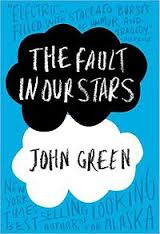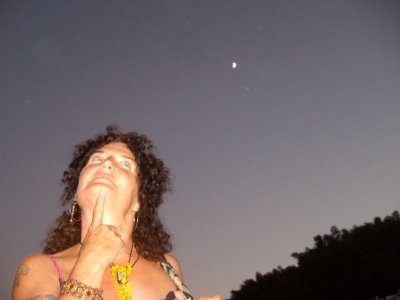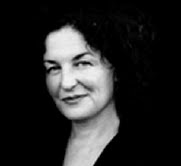If you haven’t yet read the book The Fault is in Our Stars (or seen the movie) I guess I should begin by saying this blog will contain spoilers.
This story is about having cancer as a teen and dying from it. It’s also about a young woman, Hazel Grace, having cancer, a sense of humor, belief in her ability to have her life on her own terms, fall in love and claim her independence. It’s about a young man, Augustus Waters, falling in love, being insecure as a young man, yet secure enough to cry, and his belief in making life better for those around him for as long as he can—even after death.
It’s quite remarkable and…its aftermath is also remarkable. This book and its film and following have created some remarkable trends.
The author, John Green has coined a few phrases that deserve coinage in my every day usage. Among them, Green has proposed we use the phrase: “nerd fighter.” Nerd fighters fight to “increase awesome and decrease suck.”
We fight against suck….we fight for awesome. We fight using our brains, our hearts, our calculators and our trombones.
 Among other things nerd fighters do is to fight against human trafficking and to fight against sexual abuse. Maybe it’s because I came of age as a feminist in the early 80s when young men were mostly fighting feminism and its encroachment on male privilege that I find today’s post-millennial young male feminists exhilarating and heartwarming and motivating. To find young men involved in the struggle for women’s liberation still feels revelatory. Nerd fighters are to be clear both women and men and (as far as I can tell) understand the concept of fighting for female freedom—maybe that’s why they are “nerds.” Perfect. I’ve always loved nerds.
Among other things nerd fighters do is to fight against human trafficking and to fight against sexual abuse. Maybe it’s because I came of age as a feminist in the early 80s when young men were mostly fighting feminism and its encroachment on male privilege that I find today’s post-millennial young male feminists exhilarating and heartwarming and motivating. To find young men involved in the struggle for women’s liberation still feels revelatory. Nerd fighters are to be clear both women and men and (as far as I can tell) understand the concept of fighting for female freedom—maybe that’s why they are “nerds.” Perfect. I’ve always loved nerds.
Green uses irony to allow girls and boys (or rather teensJ) to be “cool” and be nerds. So if someone thinks being a nerd is an insult…Green has this to say. What is someone actually saying when they insult you by calling you a nerd? Are they actually saying you get excited? You love life? Are you, in Green’s words…“too enthusiastic about the miracle of human consciousness”?
The fault is in our stars. Shakespeare has Cassius say, “The fault, dear Brutus, is not in our stars/ But in ourselves.” But Green is saying no– the fault is not in ourselves—the fault is in our stars. We (these characters) were born under stars that determined for whatever crazy reason that they got cancer. We all of us, no matter our state of health, will die. We will love; and we will die. And we will hurt. And we will feel pain. And we will feel love. And we will live and die through it. And the fault is in our stars—the luck of the draw. It’s the “fault” of fates. We must make the best use of the hand we have while we can. It’s not our fault—life is hard and beautiful.
 This is endemic to religious thought—and feminist thought. Hazel Grace (big spoiler alert) does not intend to fall in love. She doesn’t want to hurt anyone—much less a young man surviving from cancer. However, unbeknownst to her (and him) his cancer is worse than hers– and he will die first. She has to be the strong one—she has to be the one working on the funeral plans and delivering the eulogy at his funeral. We rarely see a woman character come forward in this way. She also understands deeply the role the women play in the book (and so beautifully) in the film. She intends to say something else at the funeral—something very much about her and Augustus’ relationship, about how cancer sucks, and how they love each other…and it’s very personal to her and Augustus and in fact she does say it to him in the most moving scene in the film—when Augustus stages a “funeral” for himself so he can hear the eulogies of his friends for himself while he is still alive. But, at his actual funeral she says something different. She says the things she knows her boyfriend’s mom needs to hear. Because sometimes you have to do what you have to do. She steps into her own in that moment.
This is endemic to religious thought—and feminist thought. Hazel Grace (big spoiler alert) does not intend to fall in love. She doesn’t want to hurt anyone—much less a young man surviving from cancer. However, unbeknownst to her (and him) his cancer is worse than hers– and he will die first. She has to be the strong one—she has to be the one working on the funeral plans and delivering the eulogy at his funeral. We rarely see a woman character come forward in this way. She also understands deeply the role the women play in the book (and so beautifully) in the film. She intends to say something else at the funeral—something very much about her and Augustus’ relationship, about how cancer sucks, and how they love each other…and it’s very personal to her and Augustus and in fact she does say it to him in the most moving scene in the film—when Augustus stages a “funeral” for himself so he can hear the eulogies of his friends for himself while he is still alive. But, at his actual funeral she says something different. She says the things she knows her boyfriend’s mom needs to hear. Because sometimes you have to do what you have to do. She steps into her own in that moment.
She stands up for her identity in many ways in the film. When the priest/minister introduces her at the gravesite by saying “Augustus’ friend” has a few words, the first thing she does is correct him by re-introducing herself as “actually his girlfriend.” Just saying. Claiming identity is the first hallmark of a feminist. It’s why we have the label in the first place.
I don’t know if Hazel Grace herself would call herself a feminist. And I suppose that’s a question for John Green should he choose to answer.
It’s clear that the actress playing Hazel Grace does not necessarily consider herself a feminist. Shailene Woodley has this to say about being called a feminist,
…the word ‘feminist’ is a word that discriminates, and I’m not into that. I don’t think there has to be a separation in life in anything. …I do consider myself someone who’s so embracing of women and loves women…Labels are for other people to understand us, so for me, I know how I feel and I don’t need to call myself a ‘feminist’ or ‘not a feminist’ because I know what my truth is. If you need in your own mind to say that I’m a feminist so you better understand where I’m coming from and what my ideals mean, then that’s for you. Labels are for people to understand one another, not for us to understand ourselves. I know where my cayenne sits in my spice cabinet. You can go and label each distinct spice, but I know what my flavors are. …I know how I feel, and I know what I do in the world with other women, and I don’t need to prove that to anyone…
In order to clarify this young actress’ point of view, let me put her words here where she ascribes herself as more connected to the word “sisterhood” than “feminism.”
I like labels and identity and finding the spice in my spice jar. I like feminism and its house and its ability to make my house bigger by claiming space in that house. By embracing the sisterhood (which is also a label) that claiming feminism provides. Be that as it may, Hazel Grace acts like a feminist. She “embraces the now.”
The Fault is in Our Stars is about“the line between embracing the now and accepting the when…” in the words of the excellent Bitch review, by Rachel Fields, of the book/movie. As she writes, “In the last year, it seems like movie studios have learned that audiences actually want to watch movies that center on smart female leads. I know it sounds absurd but, by God, let’s run with it. Somewhere in a flat above Diagon Alley, Hermione Granger is sleeping soundly.” True that.
Finally, The Fault is in Our Stars probably will make you cry. Why do we look down on movies that make us cry, rather than on those that make us laugh? Is it because women cry more easily than men? Is it because it may be a feminist thing to cry easily? To as Maggie Khun said, “Speak your mind even if your voice shakes.” And we see in the film Hazel Grace do just that when she tells the pretentious and ultimately cruel author she has worshipped and flown across the ocean (on oxygen) to see to “f—off,” when he insults her and Gus. It’s a great scene. Women get to get mad, and cry, and speak up, and love, and wonder about life and live beyond the bounds set for them by those around them if they have to…in order to, in Green’s words, “increase awesome,” and in my words to live the life that is finally theirs.
 Bette Davis says at the end of the 1942 film Now, Voyager, “…don’t let’s ask for them moon. We have the stars.” And – we pan to a star filled sky.
Bette Davis says at the end of the 1942 film Now, Voyager, “…don’t let’s ask for them moon. We have the stars.” And – we pan to a star filled sky.
And at the end of The Fault is in Our Stars, we see the protagonist Hazel Grace also looking up at a star filled sky. In both films we end looking up at the stars. “Shoot for the moon. Even if you miss, you’ll land among the stars,” said the male band leader Les Brown. Perhaps as women, we learn to “settle” for the stars –and whose fault is that? And—is it a fault? To learn to love the life we have; that seemingly small life, yet wonderful life. Perhaps we learn that there is something in the twinkling of the stars and the millions of possibilities and wishes they hold—that are more possible, and perhaps more delicious and vibrant and more challenging for us, than “shooting for the moon,” – the one moon.
The perennial religious and existential question of “why are we here?” may be answered by asking ourselves “why shouldn’t we be here? This is our only time.”
Perhaps when we wish upon the stars we are not settling at all.
Marie Cartier is a teacher, poet, writer, healer, artist, and scholar. She holds a BA in Communications from the University of New Hampshire; an MA in English/Poetry from Colorado State University; an MFA in Theatre Arts (Playwriting) from UCLA; an MFA in Film and TV (Screenwriting) from UCLA; and an MFA in Visual Art (Painting/Sculpture) from Claremont Graduate University. She is also a first degree black belt in karate, Shorin-Ryu Shi-Do-Kan Kobayashi style. Ms. Cartier has a Ph.D. in Religion with an emphasis on Women and Religion from Claremont Graduate University.



Very interesting! Thanks for writing this. Maybe I’ll go see the movie.
LikeLike
thanks for your comment, barbara! it was so nice to sit and talk with you recently at long beach women’s spirit faire! yes…if you see the movie ( i hope you do) please post your thoughts here and we can talk more about it:-)
LikeLike
“Somewhere in a flat above Diagon Alley, Hermione Granger is sleeping soundly.” I love this. And I do love strong female characters (HAZEL) who question the structure of what we have been taught and learn to embrace the now, not the “later”. There is strength that is imparted to young readers (and John Green is so very famous for addressing women readers) when Hazel questions Gus about his very traditional (patriarchial) views on heaven/the afterlife, maleness/legacy, and what makes a person important/love. I love this blog post so much. Thank you for it!
LikeLike
thank you so much for loving the post and for letting me know!
LikeLike
What an enjoyable post! Thank you, Marie. I read the book last summer and relished it. My favorite line is that Hazel Grace “loved deeply” as opposed to loving broadly, which is a noble endeavor. I’ve just returned from Amsterdam and was delighted to see John Green in a tribute film to Anne Frank in the Anne Frank House.
LikeLike
thank you so much for your post! i had no idea about the john green video inside the ann frank house…hvg visited the a.f. house a few years ago… seeing the city in the context of this film waxsreally moving
LikeLike
Marie —
Thanks for this post. I was going to forego both the book and the movie, because I thought it might hurt too much right now. But your review has decided me to go see the movie, at least.
LikeLike
please let me know what you think if you do see it!
best,
marie
LikeLike